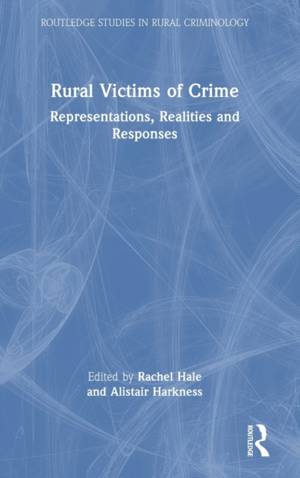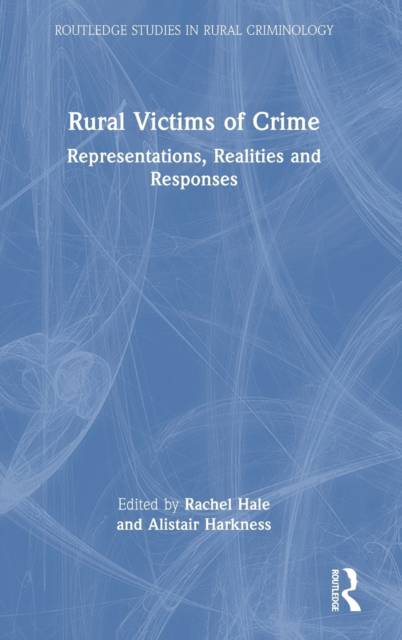
- Afhalen na 1 uur in een winkel met voorraad
- Gratis thuislevering in België vanaf € 30
- Ruim aanbod met 7 miljoen producten
- Afhalen na 1 uur in een winkel met voorraad
- Gratis thuislevering in België vanaf € 30
- Ruim aanbod met 7 miljoen producten
Rural Victims of Crime
Representations, Realities and Responses
Omschrijving
Rural Victims of Crime
offers a pioneering sustained assessment of 'the rural victim'. It does so by examining and analysing the conceptual constructs of a victim and challenging the urban bias of victimisation and victimology in criminological study. Indeed, far too much criminological scholarship is based on the false assumption that rural areas are relatively crime free - and thus free, too, of victims.Providing international perspectives, chapters in this edited collection focus centrally on notions of place and space, and constructions of rural victims in a variety of contexts, exploring the impact that geographic location has on the type and prevalence of victimisation. The concept of victimisation is often considered in terms of interpersonal relationships between humans, neglecting the potent impact of victimisation of non-humans and the natural and built environment. Rural Victims of Crime discusses existing notions of victimology in relation to non-human subjects, broadening conceptualisations of the victim and associated impacts resulting from victimisation. Structured in three parts, Rural Victims of Crime conceptualises the rural victim, enhances understanding of the realities of rural victimisation and considers both formal and informal responses to rural victimisation. Chapters are accompanied by practical, contemporary case studies to connect theory with praxis.
This book is an essential and valuable resource for academics, students and practitioners alike in the fields of criminology, criminal justice, rural studies, victimology, geography, sociology and spatiality.
Specificaties
Betrokkenen
- Uitgeverij:
Inhoud
- Aantal bladzijden:
- 266
- Taal:
- Engels
- Reeks:
Eigenschappen
- Productcode (EAN):
- 9780367677619
- Verschijningsdatum:
- 30/12/2022
- Uitvoering:
- Hardcover
- Formaat:
- Genaaid
- Afmetingen:
- 156 mm x 234 mm
- Gewicht:
- 594 g

Alleen bij Standaard Boekhandel
Beoordelingen
We publiceren alleen reviews die voldoen aan de voorwaarden voor reviews. Bekijk onze voorwaarden voor reviews.










